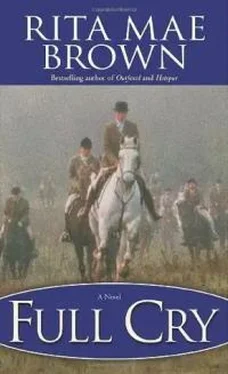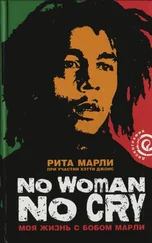This gave rise to Crawford’s greatest vanity; he desperately wanted to be joint-master. It was apparent to all that Sister must take on a joint-master to train for the day when she would be riding with the Lord. She was dragging her heels.
Crawford thought Jane Arnold did not wish to share power. Well, yes and no. She needed the right person, one whom the other members—all of them strong people and opinionated—would respect. She also wanted a true hunting master.
Putting MFH behind a man or woman’s name could turn him or her into an insufferable grandee. Crawford could be plenty insufferable as it was.
His wealth was a crowbar. Sooner or later he would pry open the old girl. He was counting on it. It fed his drive, shored up his patience, propelled him to build an expensive showgrounds with a grandstand on acres donated by the Bancrofts, who had even more money than Crawford, which irked him. In a flash of brilliance, he named the grandstand in honor of Raymond Sr., and the ring—a beautiful thing with perfect footing—after Ray Jr.
He didn’t think of this himself. His wife, Marty, helped him. The idle town gossips said she was with him because of his money. Anyone who doesn’t comprehend the importance of money is a born fool, but Marty, during a public affair of Crawford’s and their separation, had acted with dignity. In the end, this meant more to Crawford than anything else. She could have stuck him up, kept them in court for years, and curdled whatever joy might be possible with someone else. She did not upbraid him for his affair. In fact, she never mentioned it. The Virginians, in their overweening pride, felt that Marty Howard acted as “a lady of quality”—which is to say, as a Virginian. Marty was a lady of quality. Apparently, they breed them in Indiana as well as Virginia.
Marty actually loved Crawford. She knew underneath his terrible need for show and power, and his fear of losing his sex appeal, beat the heart of a good man. His ways might offend, but he truly was on the side of the angels. She had loved him from the day they met at the University of Indiana in Bloomington.
Without recognizing it, Crawford gave clues to his inner life. When Sister Jane first beheld the imposing, ferocious boars atop the equally imposing pillars, she said to Crawford, “The Duke of Gloucester, later Richard III, had just such boars as his emblem.”
Before she could continue, Crawford jumped in, “1483 to 1485. Yes, he’s a bit of a hero of mine because I believe he was faithful to the crown. When his brother, King Edward, died, the Woodvilles tried to take over England. They were commoners—grasping, greedy—but, well, Edward had to have her. And by God, she was queen. Civil war seemed unavoidable, even though Richard was named protector until the eldest son, just a boy, could inherit. He was an able administrator, a good warlord. From his estate at Middleham in Yorkshire, he was forever driving back the Scots. He was a strong king, but so many suspicions were planted against him, many by the Woodvilles and their supporters.”
Sister, upon hearing this, was not surprised that Crawford knew history. She smiled. “I always thought his biggest mistake was not in killing the princes in the Tower, if indeed he did, but in dispensing with the Earl of Warwick, his cousin. Richard Neville was more than a cousin, he was Richard III’s right arm.”
This discussion and recognition built the first bridge between Sister and Crawford. Impressed that she read history and had a real sense of the swing of power, he wondered whether perhaps there was more to her than a hard-riding, handsome old broad.
For her part, Sister sensed that Crawford was a kind of Richard III, a man of tremendous ability and loyalty whose ambition was not naturally destructive. Like Richard, Crawford lacked the outward conviviality of Edward IV, whom Richard succeeded and mourned.
As years rolled by, Sister made a point now and then to invite Crawford for coffee, just the two of them. She would also have Crawford and Marty to small dinners, carefully selecting her guests, never more than eight.
In time, older hunt club members did their best to get along with Crawford because of Sister’s example. And he did siphon money into the treasury, for which every single member was grateful, even Bobby Franklin, the president, and Bobby couldn’t abide the man.
Bobby Franklin would say, sotto voce, that one of the happiest days of his life was when Crawford moved up from the Hilltoppers to First Flight. Poor Bobby. As Master of Hilltoppers, he had to handle green horses, green riders, or, the worst of the worst: a green horse dealing with a green rider. Bobby’s sympathies rested with the horse. By the time people made it to First Flight, Bobby, a font of hunting lore, had drummed the basics into their heads.
Crawford looked out the window from his beautiful living room decorated by Colefax and Fowler. The decorating bill for the living room alone amounted to $275,000. Naturally, his estate had been featured in decorating magazines on both sides of the Atlantic.
In Virginia, money whispers. For Crawford, it shouted. He couldn’t help it. Marty tempered him a bit, but his need for display usually won out.
“Well, the goddamned Weather Channel has it wrong yet again.” He tapped his manicured forefinger against the cold windowpane.
Marty walked over. “Here.”
He gratefully took the brandy snifter and sipped the warming, delicious cognac. “Rituals of pleasure.”
She smiled. “Perfect coffee in the morning; a strong cup of tea at four in the afternoon; and brandy at twilight in the winter, a cool Tom Collins in the summer.”
“Hot kisses at bedtime.” He wrapped one arm around her waist. “Bet Tuesday’s hunt will be canceled. I was sorry that Sorrel Buruss canceled tonight’s cocktail party, but only you and I could have gotten there.”
He had recently bought a Hummer II and thought he could drive up Everest with it. His daily driver was a metallic red Mercedes S500. Crawford eschewed the other Mercedes: M’s, C’s, and E’s. A real Mercedes was an S or an SL, and that was that. Marty sensibly drove a Subaru Outback and was quite happy with it, even though Crawford wanted to buy her a Toyota Land Cruiser.
“Hot kisses? I’ll drink to that.” Marty touched her glass to his and took a sip.
“Hard to believe it’s almost the New Year. Honey, I’ve been thinking. I swore when we moved here I would retire—”
“Managing your investments is a full-time job.”
“It’s not enough for me.”
“Darling, you’re on the Board of Governors of the Jefferson Hunt Club, the board for Mercy Hospital, the national board for Save Our Farmland. You do so much even I lose track, and I’m pretty good with details.” She flattered him. “And let’s not forget that you are treasurer for the Republican Party in this county and, I expect, sweetie, will be tapped for that job for the state.”
“I don’t think they’ll put a non-Richmonder in that slot,” he replied.
“Oh, yes, they will. You’re smarter than all of them, and you have great connections out of the state. But,” she sighed a mock sigh, “I know you. What are you planning now? What world will you conquer?”
“First things first: I will be joint-master this year. The hunt selects the master on Valentine’s Day. A funny little tradition. Most hunts do it May first, unless they’re private packs, of course. February’s Board of Governors meeting is February eighteenth, so Sister Jane will have to make her decision by January’s board meeting, the twenty-first.”
“You’ll be a wonderful master.” Marty kept to herself that she thought immediate chances of this honor were slim.
He stared out the window. The snow, a white curtain, obscured even the English boxwoods lining the curving front walkway to the columned portico.
Читать дальше












